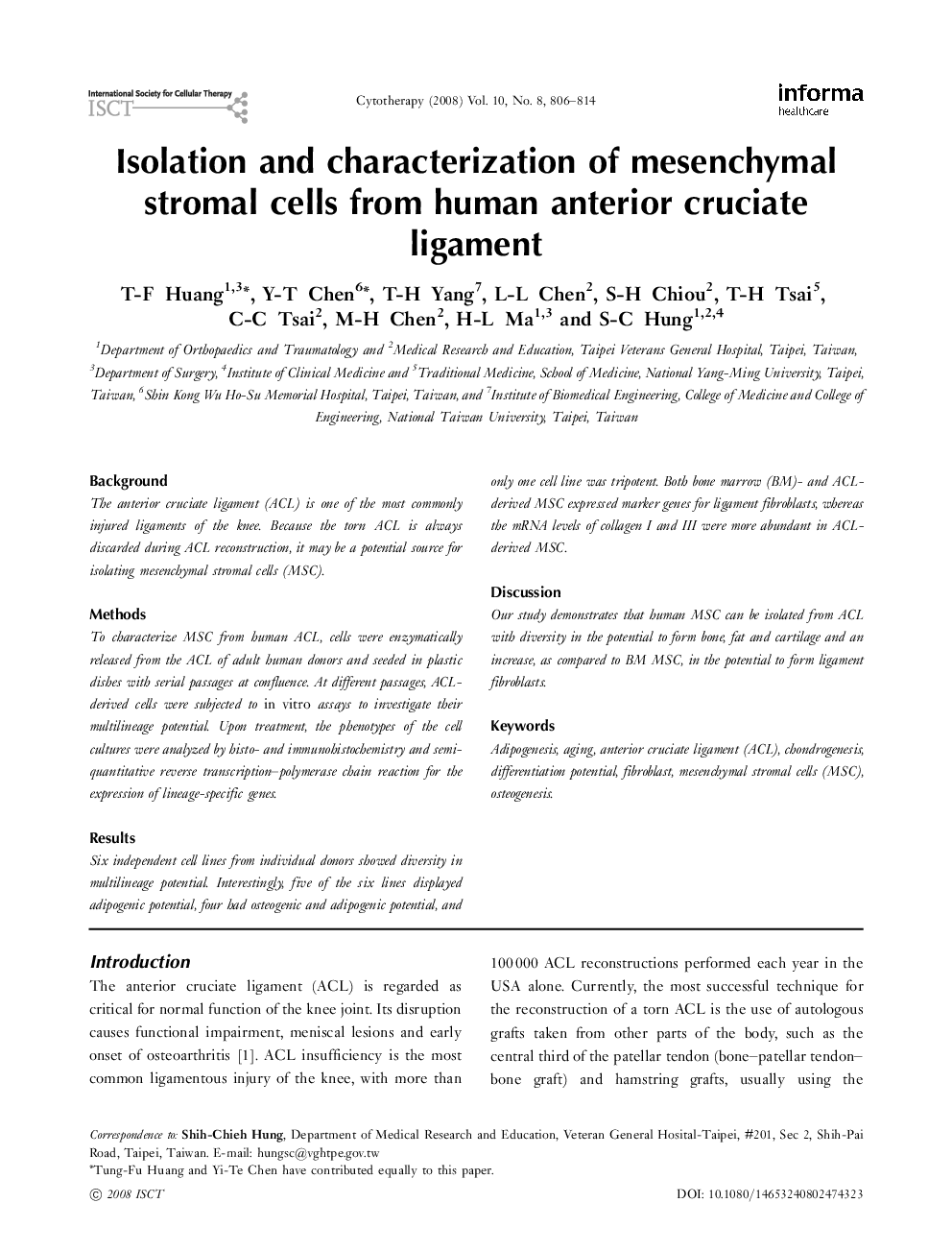| Article ID | Journal | Published Year | Pages | File Type |
|---|---|---|---|---|
| 2172348 | Cytotherapy | 2008 | 9 Pages |
BackgroundThe anterior cruciate ligament (ACL) is one of the most commonly injured ligaments of the knee. Because the torn ACL is always discarded during ACL reconstruction, it may be a potential source for isolating mesenchymal stromal cells (MSC).MethodsTo characterize MSC from human ACL, cells were enzymatically released from the ACL of adult human donors and seeded in plastic dishes with serial passages at confluence. At different passages, ACL-derived cells were subjected to in vitro assays to investigate their multilineage potential. Upon treatment, the phenotypes of the cell cultures were analyzed by histo- and immunohistochemistry and semi-quantitative reverse transcription–polymerase chain reaction for the expression of lineage-specific genes.ResultsSix independent cell lines from individual donors showed diversity in multilineage potential. Interestingly, five of the six lines displayed adipogenic potential, four had osteogenic and adipogenic potential, and only one cell line was tripotent. Both bone marrow (BM)- and ACL-derived MSC expressed marker genes for ligament fibroblasts, whereas the mRNA levels of collagen I and III were more abundant in ACL-derived MSC.DiscussionOur study demonstrates that human MSC can be isolated from ACL with diversity in the potential to form bone, fat and cartilage and an increase as compared to BM MSC, in the potential to form ligament fibroblasts.
